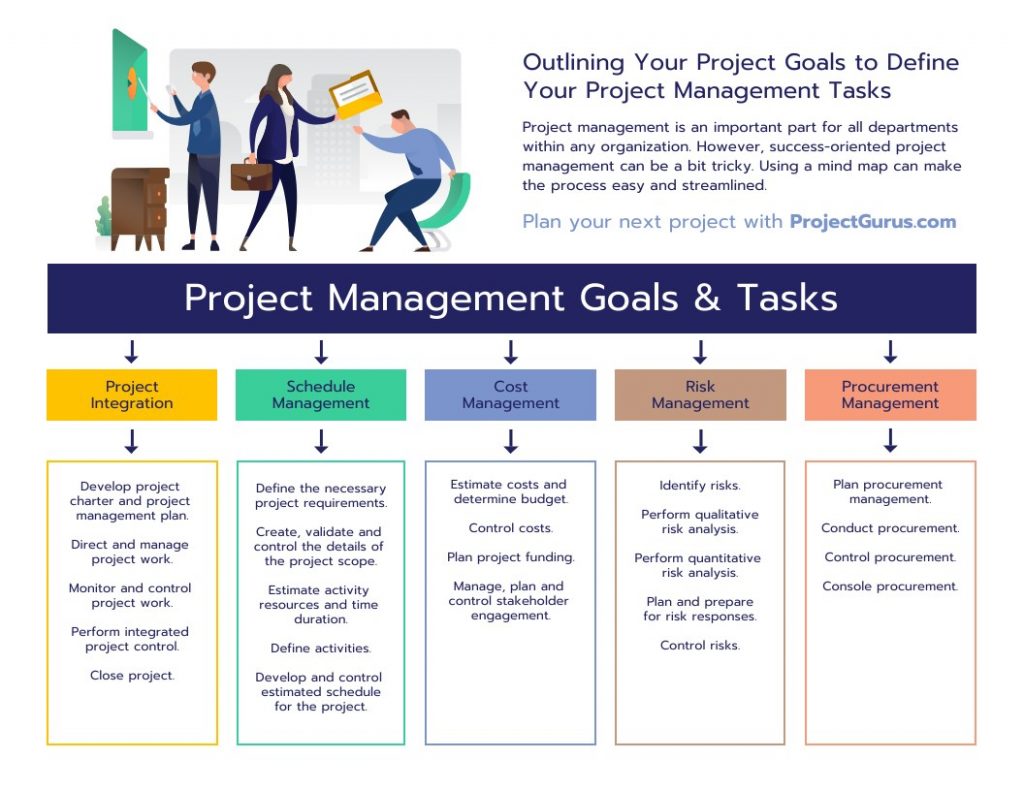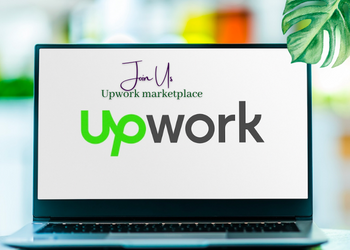Are you wondering how to effectively communicate and stay updated with freelancers throughout your project? Well, look no further! Managing communication and updates with freelancers is crucial for project success. Let’s dive in and discover some valuable tips and strategies.
Communication is key! When working with freelancers, it’s important to establish clear channels of communication to ensure everyone is on the same page. Whether it’s through email, video calls, or project management tools, find the method that works best for you and your freelancers.
Regular check-ins and updates are essential. By scheduling regular meetings or setting up weekly progress reports, you can stay informed about the project’s status, address any concerns, and provide feedback. This helps maintain open lines of communication and promotes collaboration throughout the project.
Now that we understand the importance of effective communication and regular updates, let’s explore some practical techniques to make managing freelancers a breeze. So, buckle up and get ready to navigate the world of freelancer communication with confidence!
Managing communication and updates with freelancers throughout a project is crucial for success. Here’s a step-by-step guide:
- Establish clear expectations and goals.
- Use a project management tool for transparent communication.
- Set up regular check-ins via video calls or messaging apps.
- Provide timely feedback and clarification.
- Document all updates and discussions for easy reference.
By following these steps, you’ll ensure effective collaboration and a smooth project workflow with freelancers.

How to Manage Communication and Updates with Freelancers Throughout the Project
Managing communication and updates with freelancers throughout a project is essential for its success. Effective communication ensures that everyone is on the same page, deadlines are met, and the quality of work meets expectations. In this article, we will explore strategies and best practices for managing communication and updates with freelancers throughout the project, ensuring a smooth and successful collaboration.
1. Setting Clear Expectations
Setting clear expectations from the beginning is crucial for effective communication with freelancers. Clearly define the scope of the project, the specific tasks and deliverables, and any deadlines or milestones. It is also important to communicate the desired level of communication and updates throughout the project. By establishing these expectations upfront, freelancers will have a clear understanding of what is expected of them and how often they should provide updates.
Furthermore, communication channels should be established. Determine whether it is best to communicate via email, phone calls, instant messaging platforms, or project management tools. It may also be necessary to establish regular check-ins or progress meetings to ensure ongoing communication.
By setting clear expectations and communication channels from the start, both freelancers and project managers can work together more efficiently and effectively.
2. Utilizing Project Management Tools
When managing communication and updates with freelancers, utilizing project management tools can greatly enhance collaboration and organization. Project management tools provide a centralized platform for communication, task management, file sharing, and progress tracking. They allow project managers to assign tasks, set deadlines, and keep track of project updates in real-time.
Some popular project management tools include Trello, Asana, and Basecamp. These tools enable the creation of tasks, subtasks, and checklists, making it easy to track the progress of each freelancer’s work. They also provide a space for discussion and collaboration, eliminating the need for back-and-forth email exchanges.
By utilizing project management tools, project managers can have a clear overview of the project’s progress, collaboratively work with freelancers, and streamline communication and updates.
3. Establishing a Communication Schedule
Establishing a communication schedule is essential for managing updates with freelancers throughout the project. Determine the frequency and format of updates and communicate it clearly to freelancers. For example, you may require weekly progress reports or daily check-ins through email or project management tools.
It is important to strike a balance between regular updates and overwhelming freelancers with constant communication. By setting a schedule and sticking to it, freelancers can plan their work accordingly and ensure that they are providing timely updates.
In addition to formal updates, it is also beneficial to encourage open communication. Let freelancers know that they can reach out with any questions or concerns at any time. Creating an environment of open communication fosters trust and collaboration.
4. Providing Timely Feedback
Providing timely feedback is crucial for managing communication and updates with freelancers. Feedback allows freelancers to understand whether their work is meeting expectations and provides an opportunity for improvement. When providing feedback, be specific, constructive, and timely.
If a freelancer’s work is not meeting expectations, address it as soon as possible, providing guidance and suggestions for improvement. On the other hand, don’t forget to acknowledge and appreciate good work. Positive feedback motivates freelancers and encourages them to continue performing at a high level.
Remember that communication is a two-way street. Encourage freelancers to provide feedback, ask questions, and share their ideas. By acknowledging their input, you create a collaborative and inclusive work environment.
5. Managing Expectations and Scope Changes
Throughout a project, it is not uncommon for expectations or scope to change. It is important to effectively manage these changes and communicate them to freelancers. If there are any modifications to the project, clearly communicate the updates and their impact on the tasks and deadlines.
When a change in scope occurs, discuss it with freelancers to assess its feasibility and potential impact on the project timeline. If necessary, negotiate new deadlines or a revised budget. Maintaining transparent and open communication during scope changes ensures that everyone is on the same page and prevents misunderstandings.
Remember to document any scope changes or adjustments to avoid confusion later on. Clear documentation helps set expectations and provides a reference point for all parties involved in the project.
6. Regularly Assessing and Improving Communication
Effective communication is a continuous process. Throughout the project, regularly assess how communication and updates are being managed and identify areas for improvement. Reflect on what has worked well and what can be done better.
Encourage feedback from freelancers on the communication process. They may have suggestions or insights on how to improve collaboration or streamline communication. By actively seeking feedback and implementing changes, you create a better working environment for both freelancers and project managers.
Consider conducting a project retrospective at the end of the project to gather insights from all parties involved. Identify strengths and weaknesses in communication and updates and use this information to improve future projects and collaborations.
7. Building Strong Relationships
Building strong relationships with freelancers is essential for successful project management. Treat freelancers as valued team members and foster a positive and respectful working relationship. Establishing good rapport and trust ensures effective communication and encourages freelancers to go above and beyond in their work.
Invest time in getting to know freelancers on a personal level. Show interest in their work and acknowledge their expertise and contributions. Regularly check in on their well-being and provide support when needed. By building strong relationships, you create a conducive working environment that promotes open communication and collaboration.
Remember that freelancers often have multiple clients and projects. Maintaining strong relationships will make freelancers more likely to work with you on future projects, ensuring continuity and consistency in your team.
Additional Tips for Managing Communication and Updates with Freelancers
1. Clearly define payment terms and milestones
By clearly defining payment terms and milestones at the beginning of the project, both parties have a clear understanding of when and how payments will be made. This helps avoid misunderstandings and ensures a smooth financial aspect of the collaboration.
2. Foster a positive and inclusive work culture
Create a positive work culture that values diversity, inclusion, and collaboration. Encourage freelancers to share their ideas and opinions, and ensure that they feel respected and heard throughout the project.
3. Be responsive and proactive
Respond to freelancers’ messages and inquiries in a timely manner. Being proactive in addressing any potential issues or roadblocks shows that you are invested in the project’s success and value their contributions.
4. Provide resources and information
Ensure that freelancers have access to all the necessary resources and information they need to complete their tasks. This includes project briefs, style guides, relevant files, and any other materials that are essential for their work.
5. Foster a culture of continuous learning
Promote a culture of continuous learning and improvement. Encourage freelancers to share their knowledge and expertise, and provide opportunities for professional development.
6. Celebrate milestones and achievements
Recognize and celebrate milestones and achievements throughout the project. This boosts morale and motivation, and shows appreciation for the hard work and dedication of freelancers.
7. Maintain professionalism and respect
Always maintain professionalism and respect in all communications with freelancers. Treat them as equal partners in the project and address any conflicts or issues in a constructive and respectful manner.
In conclusion, effective communication and updates are vital for successful collaboration with freelancers throughout a project. By setting clear expectations, utilizing project management tools, establishing a communication schedule, providing timely feedback, managing scope changes, regularly assessing communication, building strong relationships, and implementing additional tips, you can ensure effective communication and a successful project outcome.
Key Takeaways: How to Manage Communication and Updates with Freelancers Throughout the Project
- Regularly schedule check-ins with freelancers to discuss updates and progress.
- Set clear expectations and deadlines from the beginning of the project.
- Utilize project management tools to keep everyone on the same page.
- Provide constructive feedback to freelancers for improvement.
- Establish open lines of communication and encourage freelancers to ask questions or seek clarification.
Frequently Asked Questions
In today’s modern work landscape, managing communication and updates with freelancers is crucial for the success of a project. Here are some common questions and answers to help you navigate this process smoothly:
1. How often should I communicate with freelancers throughout the project?
Regular communication is key to ensuring a project stays on track. Set clear expectations from the beginning, such as weekly update meetings or daily check-ins, to keep everyone informed. Transparency and open lines of communication will foster trust and collaboration.
However, be mindful of not overwhelming the freelancers with constant communication. Find a balance that allows them to focus on their work while keeping you updated on progress and any potential roadblocks along the way.
2. What tools can I use to manage communication and updates with freelancers?
There are various tools available to streamline communication with freelancers throughout a project. Project management platforms like Trello or Asana enable you to create tasks, assign deadlines, and track progress in real-time. These tools also allow for seamless collaboration and communication through task comments and notifications.
Additionally, messaging apps like Slack or Microsoft Teams provide a convenient way to stay in touch with freelancers, allowing for instant messaging, file sharing, and even video calls. Prioritize finding tools that align with your preferred workflow and make it easy to keep freelancers updated and engaged.
3. How can I ensure effective communication with freelancers who are in different time zones?
Working across different time zones can present challenges, but with proper planning, it can be managed effectively. Start by establishing a common understanding of working hours and availability. Find overlapping hours where you can have real-time communication, even if it means adjusting your schedule slightly.
Take advantage of asynchronous communication tools such as email or project management platforms, where you can leave detailed messages and updates that freelancers can access at their convenience. Maintaining clear documentation of expectations, deadlines, and communication protocols will also help bridge the time zone gap.
4. How do I ensure that freelancers understand project requirements and expectations?
Clear and detailed communication upfront is essential to ensure freelancers have a solid understanding of project requirements. Start by providing a comprehensive project brief that outlines objectives, deliverables, and any specific instructions or preferences.
Additionally, schedule a kickoff meeting or video call to discuss the project in depth and address any questions or concerns. Encourage freelancers to ask for clarification whenever needed, and document any changes or updates as the project progresses to maintain clarity and align expectations.
5. How should I handle communication challenges or conflicts with freelancers?
Communication challenges or conflicts can arise in any working relationship, and it’s important to address them promptly and professionally. Start by openly discussing the issue with the freelancer, allowing them to share their perspective and concerns. Active listening and empathy can go a long way in resolving misunderstandings.
If the issue persists, consider involving a mediator or project manager to facilitate the conversation and find a mutually agreeable solution. Maintaining clear channels of communication from the beginning and addressing any issues proactively can help prevent conflicts from escalating and maintain a positive working relationship.
Project Managers: Tips for Communicating Effectively
Summary
Communication with freelancers is crucial for a successful project, and there are some key strategies to keep in mind. First, establish clear expectations and goals from the beginning. This will help freelancers understand what is required of them. Second, use multiple communication channels to stay in touch, such as email, phone calls, or video chats. Variety is key!
When updating freelancers, provide clear and concise instructions to avoid any confusion. Be specific about deadlines and deliverables. Regularly check in with freelancers to ensure everything is on track and offer support when needed. Remember, open and honest communication is essential for a smooth collaboration. So next time you work with freelancers, keep these tips in mind and enjoy a successful project together!



